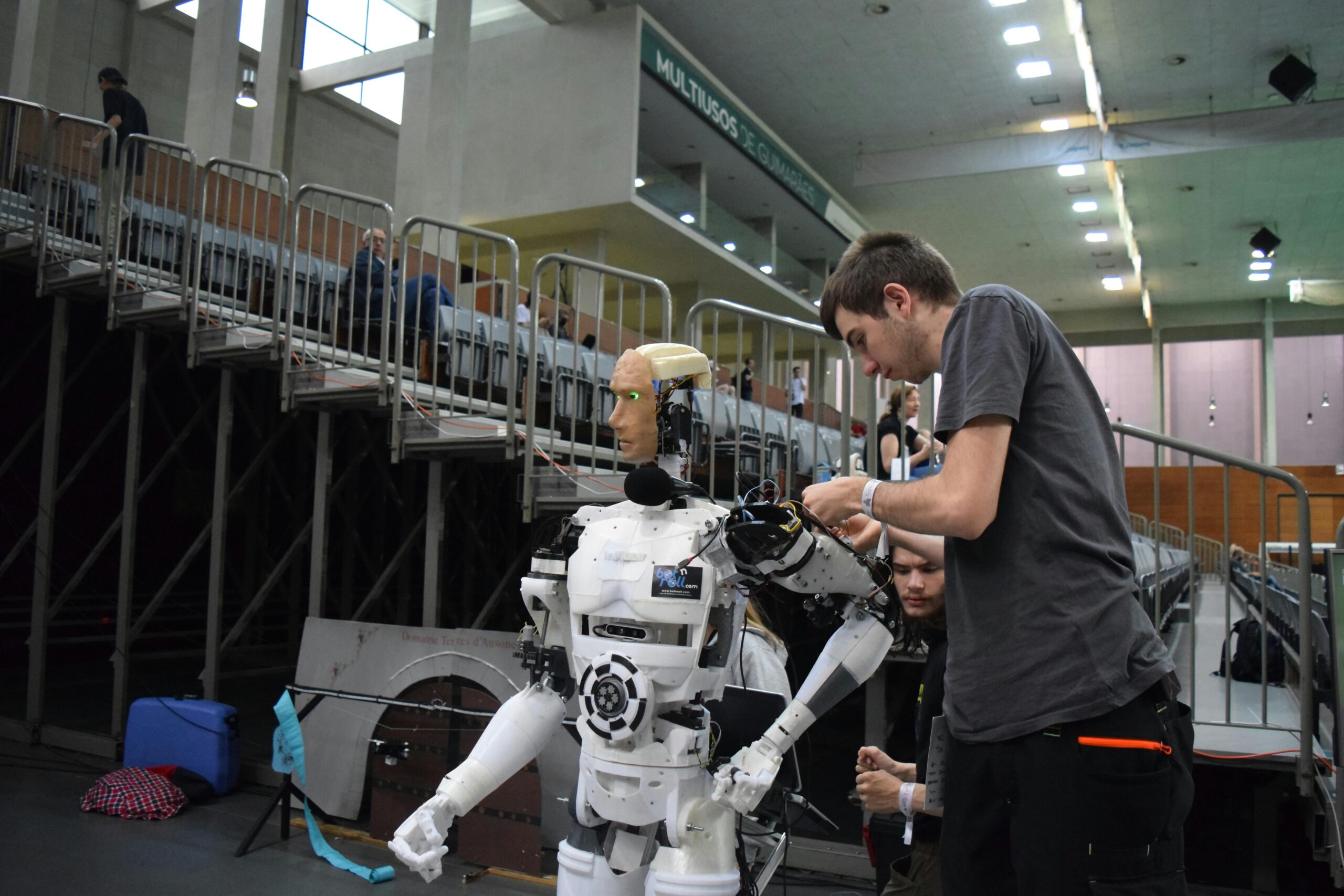Being in this bustling world of technological advancements and transitioning into the machine-centered world, one major aspect that’s continuously evolving is education and hence it is super trendy when it comes to the blend of education and tech together. With Artificial Intelligence (AI),emerging at an expansive and quick rate the landscape of learning or education is undergoing a profound transformation. But how does it impact students, teachers, and the educational system as a whole? Well, why don’t we find out? Read this blog entirely to know the immediate and direct or indirect impacts that AI will make on education.
Personalized Learning Experiences:
One of the most significant impacts AI will have on education is its ability to provide personalized learning experiences. Imagine a classroom where each student’s strengths, weaknesses, and learning pace are meticulously analysed by AI algorithms. When this data is collected then it can be used by the educators who can make specific lessons and assignments to suit the individual needs of the students hence giving them a more comprehensive way of approaching educational concepts.
Enhanced Student Engagement:
Traditional classroom settings often struggle to keep students engaged. However, AI-powered tools that are in trend today offer the most interactive and immersive learning experiences for the students and hence can capture students’ attention and make their curiosity go up about the subjects that they are interested in hence using virtual reality simulations to gamified learning platforms, AI opens up a range of possibilities to engage the students in various copes.
Improved Learning Outcomes:
By using the power of AI analytics that have been in education and other industries for a while now thanks to the ever-changing modules that the major AI companies are bringing to the market, educators can now gain valuable insights about the student’s progress and comprehension levels and assess accordingly. This data-driven approach that educators chose enables the teachers to identify areas where students may be struggling and intervene with targeted support, ultimately leading to improved learning outcomes for all.
Accessibility and Inclusivity:
AI has the potential to break down barriers to education by making learning more accessible and inclusive. For example, the students who are suffering from any sort of disability or those who are not directly linked to the metro cities and live in remote areas, AI-powered tools that are expanding on a massive scale can provide customized learning experiences and approaches that are made specifically for these kinds of students that have unique needs or are not able to access the mainstream education sources, guaranteeing that no one is deprived of the education.
Efficiency in Administrative Tasks:
Beyond the classroom, AI can streamline administrative tasks for educators, allowing them to focus more time and energy on teaching. From grading assignments to scheduling classes, AI-powered systems can automate repetitive tasks, freeing up educators to dedicate themselves to what truly matters – guiding and inspiring students.
Lifelong Learning Opportunities:
The rapid pace of technological advancement means that the skills needed in the workforce are constantly evolving. AI-powered educational platforms offer opportunities for lifelong learning, allowing individuals to upskill and reskill as needed to stay competitive in an ever-changing job market.
Ethical Considerations and Human Oversight:
While the potential benefits of AI in education are vast, it’s essential to consider the ethical implications. As AI is becoming more and more integrated into the learning process and the education system, questions are also arising about security and data privacy It is a longing concern as of now, as algorithmic bias, and the role of human oversight are at stake as the use of AI is on a large scale. Educators in these circumstances should focus on making of easy for the students to keep up with the changing security norms and be careful how they make the students pass on virtual classrooms and follow the guidelines that are imposed by the governing bodies.
Preparation for the Future of Work:
In a world where automation and AI are reshaping industries and are on the verge of making this more and more automated in the future, it’s becoming super important for students when it comes to developing the skills that will be relevant in the workforce of tomorrow. AI in education can help bridge this gap by availing students with not only academic knowledge but also critical thinking, problem-solving, and adaptability as these skills are evergreen skills making them indisputable in any case.
Collaborative Learning Environments:
AI-powered tools facilitate collaboration among students, allowing them to work together on projects, share ideas, and learn from each other’s perspectives. Whether these are carried out and spanned out through online forums, collaborative document editing that is super trendy, or virtual group activities, AI is helping to make a community that is all about teamwork in the classroom.
Cultivating Creativity and Innovation:
Finally, AI in education has the potential to unleash students’ creativity and innovation. By automating routine tasks and providing instant feedback, AI allows students to focus on higher-order thinking skills such as creativity, problem-solving, and innovation – skills that are increasingly valuable in a rapidly changing world.
Conclusion
As we approach a new era in education, the importance of AI cannot be stated. From personalized learning experiences to lifelong learning opportunities, AI has the ability to transform how we teach and learn. However, it is critical to approach this technical change with careful planning, ensuring that AI is used professionally, responsibly, and always in service of the main goal of helping students reach their full potential. With careful use and human supervision, AI has the potential to unlock a brighter future for education, developed in a generation of lifelong learners prepared to flourish in the digital era.
